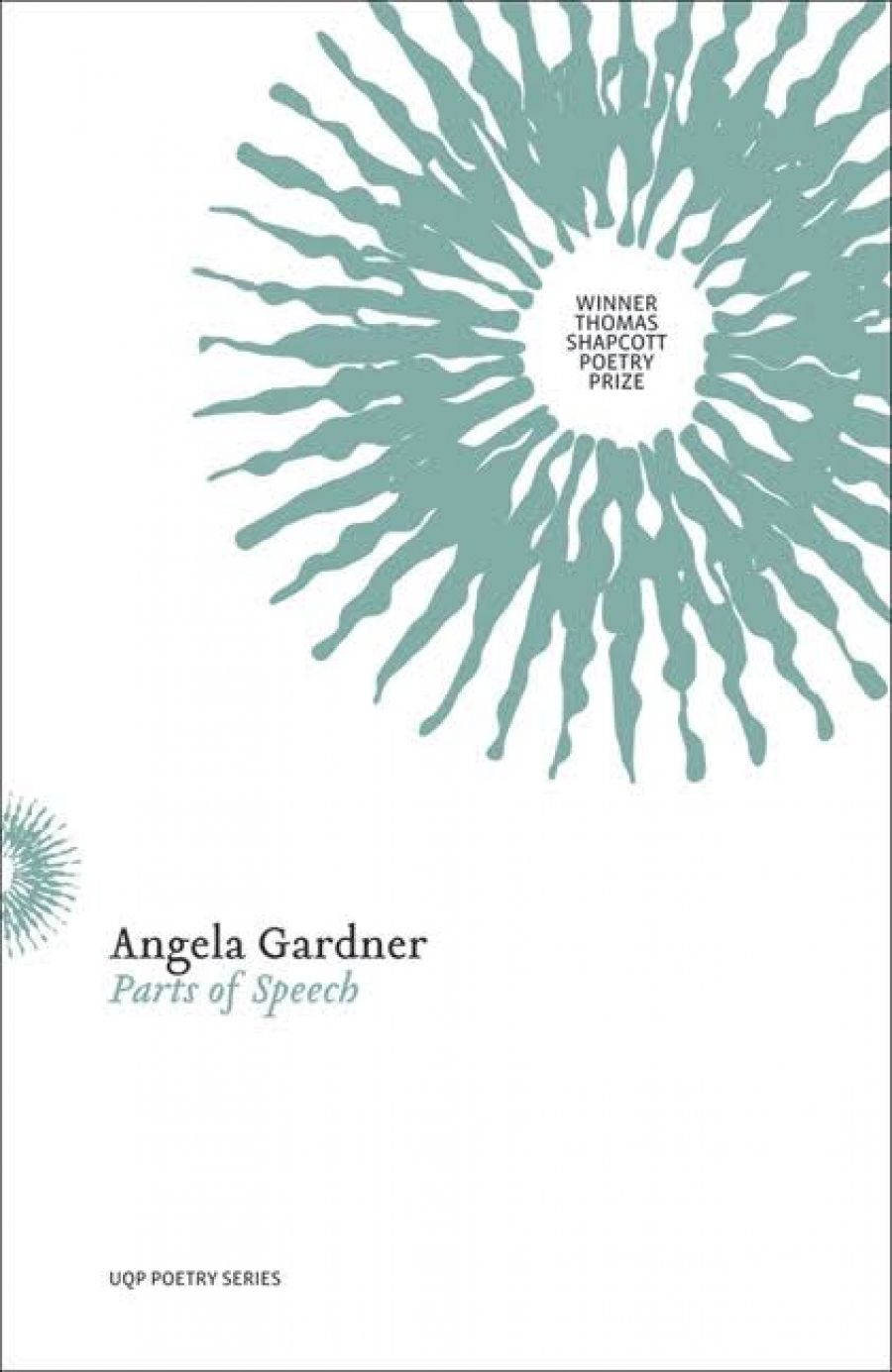
- Free Article: No
- Contents Category: Poetry
- Custom Article Title: Petra White reviews 'Parts of Speech' by Angela Gardner
- Review Article: Yes
- Article Title: Petra White reviews 'Parts of Speech' by Angela Gardner
- Online Only: No
- Custom Highlight Text:
Angela Gardner’s Parts of Speech is a lengthy first collection that ranges from experiments in ‘language’ poetry to meditations on science, the Iraq war, art and memory. It is an ambitious but rather uncertain book. The five-page title poem is in the mode of Peter Minter (who supplies an approving blurb). There are some original images and gritty, memorable lines (‘hookangles that held hold / while mortality / threadscrews experience’), but these are imprisoned by a relentlessly unvaried rhythm that makes it difficult for a reader to find a way in. And there is something merely conventional about the way this poem earnestly contrasts the freedoms of parrot, sky and elephant with the presumed artificiality of language, ‘mute text’ and ‘discredited Euclidean geometry’. This poem was too passive; it needed to be more of a genuine – serious and adventurous – interrogation of language. Similarly, ‘Embedded’ attempts to look at the Iraq war as a problem of rhetoric (‘the President’s words’) – an interesting idea, but Gardner’s own heavyhanded moral rhetoric remains surprisingly unexamined, and the reader’s approval is taken for granted.
- Book 1 Title: Parts of Speech
- Book 1 Biblio: UQP, $24.95 pb, 91 pp
‘Notes for a Day at the National Gallery’, by contrast, is chatty and relaxed, perhaps too much so. This sequence rarely liberates itself from the perspective of its ambling observer, the tourist-consumer of art who can easily dismiss works or get ‘bored’. Lines such as ‘I don’t think I like / seventeenth century French painting’ and ‘I enjoy the simplicity / of a bundle of asparagus’ are flatly self-indulgent. There are enjoyable moments of humour: ‘Crown of Thorns / and a man with a spiked collar / people you’d avoid in The Tube’. Several shorter poems, where Gardner seems less self-conscious about the mode, are more engaging: ‘Three Hours out from Heathrow’, ‘Those Old Names’ and ‘Lens and Mirror’ are well-paced, quiet meditations and give us the best glimpse of this poet’s lyrical possibilities.


Comments powered by CComment